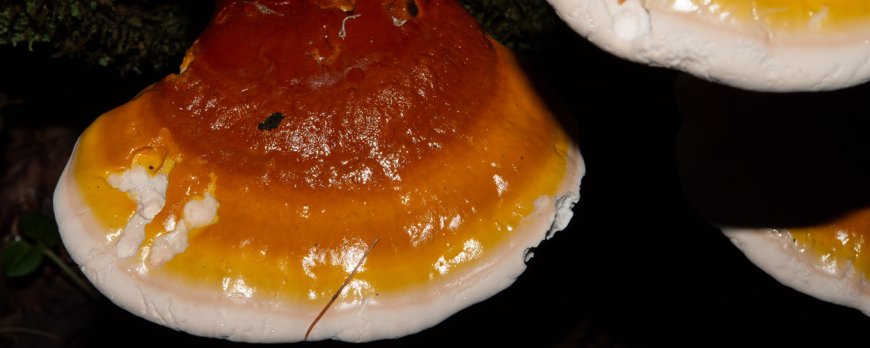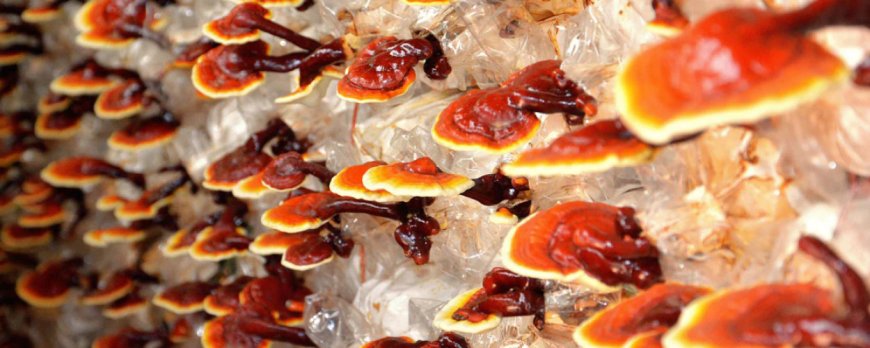What are the warnings of reishi?
Explore the health implications and warnings of reishi that every consumer should know. What are the warnings of reishi? Learn more today.

What are the warnings of reishi?
Reishi, a type of mushroom used in traditional medicine, has gained popularity as a dietary supplement in recent years. While it is generally considered safe when used as directed, there are several warnings and precautions that consumers should be aware of before using reishi. These include potential side effects, health risks, and interactions with medications.
Key Takeaways:
- Reishi is a popular dietary supplement with potential health benefits.
- However, there are several warnings and precautions associated with its use.
- Potential side effects of reishi include allergic reactions, liver toxicity, and interactions with medications.
- Consumers should consult with a healthcare professional before combining reishi with prescription drugs.
- Pregnant or breastfeeding individuals should exercise caution when using reishi.

Understanding reishi side effects
Reishi is generally considered safe for most individuals when consumed in moderate amounts. However, some people may experience adverse reactions, dangers, or potential risks associated with its consumption. It's important to be aware of these potential side effects and take precautions to minimize any risks.
Adverse Reactions
While rare, some individuals may experience adverse reactions to reishi. These reactions may include:
- Upset stomach
- Dizziness
- Dry mouth and throat
- Nosebleeds
- Itching
- Insomnia
- Low blood pressure
If you experience any of these symptoms after consuming reishi, it's recommended that you stop using it immediately and consult with a healthcare professional.
Potential Risks
Reishi may also pose potential risks for some individuals, particularly those with underlying health conditions or who are taking certain medications. These risks may include:
- Increased risk of bleeding
- Interference with blood sugar control
- Lowered blood pressure
- Worsened autoimmune diseases
- Worsened liver disease
If you have any medical conditions or are taking medication, it's important to speak with a healthcare professional before using reishi to determine if it is safe for you.
Overall, while reishi is generally considered safe for most people, it's important to be aware of potential adverse reactions and risks associated with its consumption. Always consult with a healthcare professional before using reishi as a dietary supplement.
Precautions when using reishi
While reishi is generally considered safe for consumption, there are some precautions that should be taken to ensure its safe usage.
Firstly, it is recommended to seek advice from a healthcare professional before using reishi as a dietary supplement, especially if you are currently taking medication or have pre-existing health conditions.
Additionally, individuals who are allergic or sensitive to mushrooms should exercise caution when using reishi, as it is a type of fungus.
It is also advised to avoid using reishi before surgery, as it may have a blood-thinning effect that could increase the risk of bleeding during or after the procedure.
Finally, pregnant or breastfeeding individuals should consult their healthcare provider before using reishi, as there is limited research on its safety during these stages.
Overall, it is important to be aware of these safety concerns and follow cautionary notes when using reishi as a dietary supplement.
Interactions with medications
While reishi is generally considered safe for most individuals, it is important to note that it can interact with certain medications. It is important to consult with your healthcare provider before using reishi supplements if you are taking prescription drugs.
- Reishi may interact with blood-thinning medications such as warfarin, increasing the risk of bleeding.
- Reishi may also interact with immunosuppressant drugs, such as cyclosporine, potentially reducing their effectiveness.
- Drugs metabolized by the liver may also be affected by reishi, as it can alter the levels of certain enzymes that impact drug metabolism.
It is important to inform your healthcare provider about all medications you are taking, including herbal supplements such as reishi, to prevent any potential interactions or negative side effects.

Allergic reactions and sensitivities to reishi
Like any other dietary supplement, reishi can cause allergic reactions and sensitivities in some individuals. Symptoms may vary and can range from mild to severe. If you experience any adverse reactions after consuming reishi, it is important to discontinue use and seek medical attention immediately.
Common symptoms of an allergic reaction to reishi include skin rashes, hives, itching, difficulty breathing, swollen lips, tongue, or throat, abdominal cramps, nausea, and diarrhea. These symptoms can occur shortly after consuming reishi or may develop over a period of time.
If you have a history of allergies or sensitivities to mushrooms or other dietary supplements, you may be at a higher risk of experiencing an adverse reaction to reishi. It is essential to consult with your healthcare provider before using reishi to determine whether it is safe for you to take.
Additionally, if you are taking any medications, have a pre-existing medical condition, or are pregnant or breastfeeding, it is important to speak with your healthcare provider before starting reishi supplements to minimize the risk of potential allergic reactions and sensitivities.
Potential liver toxicity
While reishi is generally safe for consumption, there have been reports of potential liver toxicity associated with its use. Studies have shown that consuming high doses of reishi supplements can lead to liver damage, particularly in individuals with pre-existing liver conditions.
It is important to monitor liver function when taking reishi, particularly when consuming large amounts or for extended periods. If you experience any symptoms of liver damage, such as abdominal pain, nausea, or yellowing of the skin, discontinue use and seek medical attention immediately.
If you have a history of liver problems or are taking medication that affects liver function, it is recommended that you consult your healthcare provider before using reishi as a dietary supplement.

Risks during Pregnancy and Breastfeeding
There is limited research available on the safety of using reishi during pregnancy and breastfeeding. Therefore, it is recommended that pregnant or breastfeeding individuals consult their healthcare provider before using reishi as a dietary supplement.
While there are no specific reports of adverse effects associated with reishi consumption during pregnancy or breastfeeding, caution is advised. The effects of reishi on hormonal balance and the developing fetus or newborn are not well understood.
If you are pregnant or breastfeeding and considering using reishi, talk to your healthcare provider about potential risks and benefits before adding it to your routine. It is always better to be safe than sorry, and the advice of a medical professional can help you make an informed decision.
Other Considerations and Potential Side Effects
While the majority of individuals who consume reishi experience no adverse effects, it is crucial to note that there are several potential side effects and risks associated with its usage.
One potential side effect is gastrointestinal distress, including diarrhea and stomach upset. Decreased blood clotting is another possible side effect, which can be dangerous in individuals who are already taking blood thinners or have bleeding disorders.
Reishi may also decrease blood pressure, which could be a concern for those with low blood pressure or who are taking medication to regulate blood pressure. Additionally, some reports have linked reishi consumption to skin rashes and breathing difficulties in rare cases.
It is also essential to note that the lack of regulation in the supplement industry means that the purity and quality of reishi products can vary widely. Consuming contaminated or impure reishi supplements could lead to additional health risks.
Overall, while reishi supplements may have potential health benefits, it is vital to be aware of the potential side effects and risks associated with their use. Individuals considering using reishi as a dietary supplement should consult with a healthcare professional to determine if it is a safe and appropriate choice for their specific circumstances.
Conclusion
Overall, the use of reishi as a dietary supplement comes with several warnings and potential risks that consumers should be aware of. While reishi is generally considered safe, it is important to take precautions, especially if you are taking medication or are pregnant or breastfeeding.
Understanding the potential side effects and health risks associated with reishi is critical to using it responsibly. It's also important to note that research on reishi is still evolving, and there may be other risks that have not yet been identified.
If you are considering using reishi, we strongly recommend consulting with your healthcare provider first. They can help you weigh the benefits and risks of using this supplement and provide guidance on how to use it safely.
Final Thoughts
Reishi has been used for centuries in traditional medicine, and its popularity as a dietary supplement continues to grow. While reishi has many potential health benefits, it's important to be aware of the potential risks and limitations of this supplement.
By being informed and cautious, you can safely incorporate reishi into your dietary supplement regimen and potentially reap its many health benefits.






























































































































